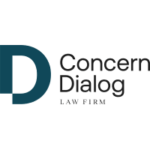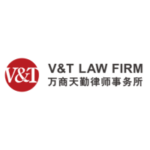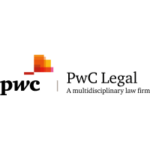-
What are the main methods of resolving disputes in your jurisdiction?
Undoubtedly, in Kosovo the predominant method for resolving civil and commercial disputes is classic court litigation. Courts are continually being burdened with new cases, and currently there is no other method that truly competes with litigation for resolving civil and commercial disputes. Regardless of the latest trends, practice shows that litigation will continue to hold the torch in resolving civil and commercial disputes for a long time.
Nevertheless, apart from litigation, alternative dispute resolution (“ADR”) mechanisms are being promoted and accepted as alternative means of resolving civil and commercial disputes. In this regard:
- Negotiation;
- Mediation, (regulated by Law No. 06/L-009 on Mediation …); and
- Arbitration, (regulated by Law No. 02/L-75 on Arbitration),
are increasingly gaining popularity but are not necessarily being used in practice. From a legislative perspective, even though ADR mechanisms are regulated – conditionally speaking, in compliance with contemporary international standards, litigants still hesitate to rely on them. In addition to litigants, most lawyers also rely more on litigation than on ADR mechanisms.
While negotiation and mediation are mostly used for low-value civil disputes, or when the parties are tired from prolonged judicial procedures and when the courts do not perform, while the case is still in trial, parties try to settle via a conciliation procedure through non-formal mechanisms too. In contrast, arbitration is mostly used for high-value commercial disputes, although none of the ADR mechanisms have set any monetary threshold. Also, the use of ADR clauses in the contracts is still low.
Negotiation, as the least formal ADR mechanism, is almost never used directly by parties before filing lawsuits. Still, there are very few cases where parties first rely on negotiation, and in these cases, they are usually advised by their lawyers to do so. Such law firms are usually promoters of ADR as well. On the other hand, one of the main factors encouraging the use of mediation is the ex officio referral of litigants to mediation by the courts. If the courts had not been active in this, mediation would have been even less applicable. Paradoxically, both negotiation and mediation are usually used after the initiation of litigation, and only in an exceedingly small number of disputes are they seen as the first step in resolving disputes. Even though, out of court settlement of a mediated case is also directly enforceable, there is still a low number of such cases settled by parties before a litigation procedure is initiated.
On the other hand, arbitration, despite being extensively promoted, is still rarely used. In particular, ad hoc arbitration is a rare phenomenon within Kosovo’s jurisdiction. Similarly, institutional arbitration – provided by the Kosovo Chamber of Economy, and the American Chamber of Commerce in Kosovo – is still rarely used, despite the continual licensing of new arbitrators. This is largely due to a lack of awareness, hesitation to move away from the traditional court system, and doubts about the enforceability of arbitral awards. The cost of arbitration, which can be higher than ordinary court proceedings, is another factor discouraging its use. Despite these challenges, the growing complexity of commercial transactions, especially those involving foreign investors, suggests that arbitration could become a more significant mechanism for dispute resolution in the coming years.
-
What are the main procedural rules governing litigation in your jurisdiction?
In Kosovo, the legislation for the civil litigation primarily and mostly derives from Law No. 03/L-006 on Contested Procedure, followed by its two amendments (Law No. 04/L-118 and Law No. 08/L-020). However, for commercial litigation there are also some new procedural rules provided by Law No. 08/L-015 on Commercial Court.
Additionally, there is an ongoing procedure for drafting the “Code of Civil Procedure”. The ratification of this anticipated code will be an innovation in Kosovo’s legislation, because procedural rules have so far been regulated by separate laws and have never been codified within a single code. The drafting procedure for the “Code of Civil Procedure” is being developed simultaneously with the drafting of the “Civil Code”, which also represents the first serious attempt to unify all civil substantive rules within a single code. The enactment of both codes will provide litigants with added legal security, and lawyers with legislative clarification. It will also introduce the necessary amendments to modernize the civil and commercial legislation currently in force.
-
What is the structure and organisation of local courts dealing with claims in your jurisdiction? What is the final court of appeal?
The judiciary structure in Kosovo belongs to the classical continental three-tiered judiciary system. This judiciary structure has been regulated by Law No. 06/L-054 on Courts. Having in mind that Kosovo belongs to the family of unitary states, its judicial structure is normally less complex compared to that of federal states.
Starting from the bottom, the first instance of the judiciary system consists of a total of seven Basic Courts, one in each region. Every single Basic Court has its own branches, serving smaller administrative units. Regarding litigation, Basic Courts and their branches have general jurisdiction to adjudicate all kinds of civil disputes as courts of first instance, except for commercial disputes.
For the adjudication of commercial disputes, as regulated by Law No. 08/L-015 on Commercial Court, the Commercial Court of Kosovo, established in 2022, is the exclusive competent court. The Commercial Court has unconstrained territorial jurisdiction over the entire territory of Kosovo for commercial disputes. Another feature of the Commercial Court is its two-tiered system, which consists of First Instance Chambers and Second Instance Chambers. This unique structure has been designed to provide commercial entities with a ‘one-stop-shop’ court. This unique judicial structure of the Commercial Court particularly serves foreign commercial entities, which deal with it as a single judicial institution for resolving their commercial disputes in Kosovo.
Going to the middle, the second instance of the judiciary system consists only of the Court of Appeals, which has jurisdiction throughout the country for civil disputes. Exceptionally, the Second Instance Chambers of the Commercial Court serve as the appellate instance for commercial disputes.
And as a final appellate court, as well as the third instance court, stands the Supreme Court, which has nationwide jurisdiction over all civil and commercial disputes.
It is necessary to say, same as in most of the European countries that belong to the continental system, the Constitutional Court of Kosovo serves outside the judicial system, as a separate court and institution for maintaining the constitutional balance among the three branches of state power. In its decisions and judgments, the Constitutional Court repeatedly emphasizes the fact that it does not serve as a fourth-instance court. From this aspect, the Constitutional Court does not resolve civil and commercial disputes, but merely reviews the constitutionality of judicial decisions that have resolved such disputes.
-
How long does it typically take from commencing proceedings to get to trial in your jurisdiction?
Having in mind that most of the courts are overloaded with cases, it typically may take a few years to get to a trial, although this depends on many different factors. Firstly, this depends on the regularity of a lawsuit and vice versa, the response to a lawsuit. If one of them does not comply with the basic formal legal requirements, additional time is required for the respective litigant to correct those deficiencies. Secondly, similarly, which is often the case in property disputes, this also depends on whether the defendant is known. If the defendant is unknown, attempts must first be made to locate them, and as a last resort, the court must appoint ex officio an interim representative for the unknown defendant from the list of attorneys. Thirdly, this depends on the subject matter of the dispute. Courts are legally required to proceed more quickly in certain specific disputes. For example, obstruction of possession disputes, labour disputes, family disputes or enforcement disputes are, by their nature, regarded as urgent disputes that must not be unduly prolonged during court proceedings. In the same manner, civil and commercial disputes in which interim measures are requested together with the lawsuit are, in practice, considered urgent disputes, and their hearings are scheduled with priority.
The digitalization of the judicial case management system plays a crucial role in ensuring equal treatment of cases, without unfairly prioritizing certain cases.
What is common in practice is the submission of the so-called ‘emergencies’ by litigants to the court, requesting that their case be treated as urgent. These emergencies are usually used by lawyers, rather than by litigants themselves. Courts do not render formal decisions on such emergencies.
-
Are hearings held in public and are documents filed at court available to the public in your jurisdiction? Are there any exceptions?
Generally, for all civil and commercial disputes hearings are open to the public. However, in practice—especially in commercial disputes—the public is often absent because hearings are usually held in judges’ chambers, which have limited space. Exceptionally, there are mandatory procedural provisions that prohibit hearings from being held in public in certain cases, such as family disputes. Also, according to the specific nature of a dispute, judges may decide to hold the hearings in closed sessions. These decisions of judges must be duly justified.
Although hearings are supposed to be held for some of the cases in the second instance, this rarely occurs in practice. On the other hand, as it is legally regulated, the Supreme Court, as the third instance for civil and commercial disputes, always decides on the basis of the case file, without holding hearings.
Documents submitted to a court by litigants must be fully accessible to both parties, without limitation. However, these documents are not necessarily and directly available for public access. In this context, documents of the case must be distinguished from judicial decisions. Unlike case documents, judicial decisions in civil and commercial disputes are intended to be published online by the courts, although in practice only some decisions are made public. Regarding documents, interested subjects, such as third-party subjects, may request the court to provide access to the case documents; however, such access depends on the discretionary assessment of either the presiding judge or the president of the court, depending on the current stage of the proceedings. For third-party subjects to have access to the documents of the case, it is necessary for them to have a “reasonable legal interest”.
-
What, if any, are the relevant limitation periods in your jurisdiction?
The civil procedural legislation in force provides for several relevant limitation periods that must be respected by the courts; however, because courts are overloaded with cases, conducting the entire contested procedure within these prescribed periods often appears unrealistic.
-
What, if any, are the pre-action conduct requirements in your jurisdiction and what, if any, are the consequences of non-compliance?
The most important pre-action procedural requirement after filing the lawsuit in the required number of hard copies is the payment of the judicial tax within the required time. The payment of the judicial tax is mandatory, and failure to pay it directly results in the dismissal of the lawsuit, without consideration of the merits of the case.
Lately, especially after the entry into force of Law No. 06/L-009 on Mediation, it has been debated whether litigants must exhaust mediation before the adjudication of the dispute. However, as both the law and judicial practice show, prior use of mediation does not constitute a mandatory pre-action requirement for litigants seeking to resolve their disputes through litigation.
-
How are proceedings commenced in your jurisdiction? Is service necessary and, if so, is this done by the court (or its agent) or by the parties?
The first procedural step for commencing civil and commercial litigation in Kosovo is the filing of a lawsuit by the plaintiff before the competent court. Upon receiving the lawsuit, the court notifies the defendant ex officio and requires a response within a specified deadline, ensuring that the defendant has the opportunity to present their arguments and evidence. Only after receiving the defendant’s response does the court schedule hearings, which are generally conducted by a single judge at the first-instance level.
It is also the court’s official duty to carry out the necessary service of documents after the commencement of proceedings by the plaintiff.
-
How does the court determine whether it has jurisdiction over a claim in your jurisdiction?
Courts are only required to determine ex officio their subject-matter jurisdiction and exclusive territorial jurisdiction over a claim. For this kind of jurisdiction, courts are required to make this determination during the initial review of the lawsuit, a preliminary procedural step before hearings are held, during which the court is limited to reviewing the case file. In this regard, when a court determines that it lacks at least one of these jurisdictions, and when it is known which court has actual jurisdiction over the respective dispute, the court must transfer the case to the competent court. At this procedural stage, if a court determines that none of the courts in Kosovo have jurisdiction over a dispute, it dismisses the lawsuit without transferring the case to a competent foreign court. Also, courts are required throughout the entire procedure to assess ex officio whether they possess subject matter jurisdiction.
For the other kinds of jurisdictions, courts are strictly limited to the defendant’s objection, otherwise, any ex officio assessment by the court in this regard would constitute an unlawful interference in the proceeding.
For the determination of subject matter jurisdiction over civil and commercial disputes courts primarily rely on Law No. 06/L-054 on Courts and Law No. 08/L-015 on Commercial Court. For the determination of territorial jurisdiction over civil and commercial disputes courts rely on Law No. 03/L-006 on Contested Procedure. And for the determination of any of these types of jurisdictions in civil and commercial disputes containing a foreign element, courts rely on Law No. 08/L-028 on Private International Law.
Mostly Basic Courts as first instance courts for civil matters deal with the issue of jurisdiction. Contrary to them, the Commercial Court, having unlimited territorial and subject-matter jurisdiction over all commercial disputes between commercial entities throughout Kosovo, rarely faces jurisdictional issues. In this regard, the Commercial Court as a newly established court sometimes faces competence issues between its own departments, or even competence issues with arbitration.
-
How does the court determine which law governs the claims in your jurisdiction?
In principle courts determine ex officio the applicable law for respective civil and commercial claims. In this aspect, courts are led by two fundamental principles: namely, the principle iura novit curia (“the court knows the law”) and the principle da mihi facta, dabo tibi ius (“give me the facts, and I will give you the law”). Litigants have the duty to present the facts, while courts must correctly apply the applicable law to those facts. Litigants are not required to assist the courts in determining the applicable law for their claims. In particular, courts apply the rules of substantive law according to their own judgment and are not bound by the parties’ statements regarding substantive law. Additionally, the issue of determining the applicable law generally arises in relation to substantive law, not procedural law, since courts in Kosovo—regardless of the circumstances of the dispute—always apply the procedural law currently in force in Kosovo. Accordingly, neither repealed procedural laws nor foreign procedural laws may be applied by Kosovo courts in contested proceedings.
Courts in Kosovo in litigation usually face questions regarding the applicable substantive law in two types of situations: first, in determining whether the applicable law is the repealed or the current one (most often in contractual and obligational disputes); and second, in determining whether the applicable law is domestic or foreign (typically in civil and commercial disputes involving a foreign element—i.e., private international disputes).
In determining the applicable substantive law in private international disputes, courts refer to Law No. 08/L-028 on Private International Law.
-
In what circumstances, if any, can claims be disposed of without a full trial in your jurisdiction?
In Kosovo, there are several circumstances where claims can be disposed of without a full trial, as provided to increase judicial efficiency. Some of these circumstances are as follows:
Firstly, before coming to claims, plaintiffs may withdraw their lawsuits, and for this a full trial is not required. A plaintiff may withdraw the lawsuit without the defendant’s consent until the defendant submits a response to the lawsuit to the court. Also, the lawsuit can be withdrawn later until the finalization of the main hearing, if the defendant agrees to the withdrawal.
If the defendant issues no statement for withdrawal of the lawsuit against him within 7 days from the day being informed, it is ascertained that he agrees to the withdrawal of the lawsuit. In either case, a full trial is not required.
The withdrawal of a lawsuit differs from the withdrawal of a claim in terms of legal effect. With the withdrawal of a lawsuit, the dispute in question does not become a res judicata dispute, and the same party can file a lawsuit again for the same dispute. While with the withdrawal of a claim, the dispute in question becomes res judicata, and as a result of this, the same party cannot file a lawsuit again for the same dispute.
Secondly, if the court invites the plaintiff to fix errors within a fixed time in a lawsuit in regards to parties or in regards to plaintiff’s representative, and the plaintiff does not fix these procedural deficiencies in the lawsuit, then the court, without holding a full trial, can drop the lawsuit if such procedural deficiencies of the nature that may hinder the further proceedings of the matter have not been fixed.
Thirdly, when the court, after receiving the response to the lawsuit, finds that the facts stated in the lawsuit do not establish the merits of the lawsuit, then it will issue a decision on the merits, by rejecting the claim as unfounded.
Fourthly, litigants may freely dispose of the civil legal claims they have submitted during the procedure. In litigation they freely can withdraw their claims, recognize the opposing party’s claims, and reach a judicial settlement regarding their dispute, thus avoiding the need for a full trial. However, the court may not approve the agreements of litigants that are in contradiction with the: a) legal system; b) legal provisions; and c) rules of public morale.
Fifthly, the court may decide regarding the claim based on written procedural actions and evidence administered that was submitted indirectly, if determined by the law.
Sixthly, the court may render a judgment based on disobedience/non-compliance of the defendant without having to hold a full trial. If the defendant, within the time period, does not submit the response to the lawsuit, the court renders the judgment that approves the claim if the respective conditions are met.
Seventhly, the court may render a judgment due to absence of the defendant without having to hold a full trial. When the defendant has not been served with the lawsuit for making a response, but only with a summons to the preparatory hearing, and he does not appear at the hearing until its conclusion, or at the first hearing for the main hearing, if the preparatory hearing has not been scheduled at all, the court, upon the plaintiff’s proposal or ex officio, issues a judgment approving the claim if the respective conditions are met.
Lastly, the court may render a judgment without a hearing of the case if the defendant through a response to the lawsuit has confessed decisive facts, though it contests the claim, and if there are no obstacles for the court to issue such a judgment.
-
What, if any, are the main types of interim remedies available in your jurisdiction?
Law No. 03/L-006 on Contested Procedure recognizes three main types of interim remedies, namely, interim remedies for securing:
- Monetary claims;
- Claims directed at specific objects, or parts thereof; and
- Other types of claims or existing situations.
The last type of interim remedies provides courts with a variety of additional interim remedies, which are not specifically listed in the law. This serves that purpose, particularly in commercial litigation, where disputes—unlike most civil disputes—often require innovative interim remedies due to technological and other rapid developments. Also, courts may order two or more interim remedies simultaneously if this ensures the intended effect.
It is important to note that courts may impose interim remedies not only to preserve the status quo of a dispute pending a final judicial decision, but also until such decision is enforced. Also, the procedure for deciding requests for interim remedies is significantly faster than ordinary contested proceedings, and given the urgent nature of such remedies, courts are required to treat them as matters of priority.
-
After a claim has been commenced, what written documents must (or can) the parties submit in your jurisdiction? What is the usual timetable?
In proceedings before the first instance courts, after the commencement of a claim, parties can be asked by courts to submit mandatory documents if they have not been submitted in a timely manner.
In each proceeding, the defendant, after being served with the lawsuit and any attached documents, is obliged to respond in writing to the lawsuit within 15 days.
Both litigants may submit further evidence, statements, proposals, and notices as needed, including:
- Requests for evidence;
- Objections (e.g. to jurisdiction or procedural violations);
- Settlement proposals;
- Amendments or withdrawals of claims; etc.
If a submission is incomplete or unclear, the court grants the party a three-day deadline to rectify it. For all other documents and procedural acts, the court sets deadlines as needed, taking into account the complexity of the case.
In proceedings before the second instance initiated with the submission of the complaint, the other party is not necessarily required to submit a response to the complaint. The response to the complaint is submitted only on a voluntary basis, and only at the party’s initiative. For submission of the response to the complaint, the respective party has a 7-day deadline in civil disputes, and a 3-day deadline in commercial disputes.
Regarding evidence, new evidence may be submitted with the complaint only if the complainant was not at fault for failing to disclose it before the first instance court within the prescribed period. In such cases, the complainant must also demonstrate that they were not at fault for failing to disclose the respective evidence within the required period.
In proceedings before the third instance, responses to extraordinary legal remedies are likewise not necessarily required from the other party.
-
What, if any, are the rules for disclosure of documents in your jurisdiction? Are there any exceptions (e.g. on grounds of privilege, confidentiality or public interest)?
Kosovo, by being part of the continental legal system, relies primarily on written evidence rather than on oral or non-written evidence. Documents in our contested procedure are one of the most plausible and frequently used judicial mechanisms for examining facts of the case. Most of the civil and commercial disputes are litigated primarily on documentary evidence. Generally, the procedural provisions in force do not provide strict rules regarding the disclosure of documents to the court. Litigants are relatively free to disclose documents to support their claims. Moreover, each litigant is primarily obliged to present the documents that they intend to use to substantiate their claims or counterclaims. Documents can be submitted in original, typed, or photocopied form. If a copy of the document is submitted to the court at the request of the opposing party, the court shall request the submitter to provide the original document and allow the opposing party to inspect it.
In this regard, public documents generally have greater credibility than private documents, and their content is generally presumed to be correct. Nevertheless, it is permissible to prove that the facts recorded in a public document are incorrect or that the document was improperly drafted. Also, legalized foreign public documents are generally permissible, and are considered to have the same evidentiary weight as domestic public documents. If a litigant submits a document in a language other than the official language, they must attach a certified translation prepared by an authorized court translator or interpreter.
If the document is in the possession of a state body or legal entity entrusted with the exercise of public authorizations, and the litigant is unable to submit or present it, the court shall, upon the litigant’s request, obtain the document ex officio. In the same manner, if one litigant refers to a document and claims that it is in the possession of the opposing party, the court shall, by decision, summon the latter to submit the document, setting a reasonable deadline for this. Also, at the request of a litigant, the court may order a third party to present a document that serves as evidence to establish a decisive fact.
It should be noted that the manipulation or falsification of documents constitutes a criminal offense under Criminal Code No. 06/L-074, and courts are obliged to report any such offenses detected during contested proceedings.
-
How is witness evidence dealt with in your jurisdiction (and in particular, do witnesses give oral and/or written evidence and what, if any, are the rules on cross-examination)? Are depositions permitted?
Kosovo follows a continental system, so cross-examination is limited and controlled by the judge, rather than as in adversarial common law systems. Courts generally rely more on written evidence than on oral evidence. Nevertheless, witness evidence is not only legally recognized as a means of establishing the facts of a case but is also used in practice, particularly in property, family, and labour disputes.
Witness evidence can only be taken based on a request of litigants: the court cannot ex officio request witness evidence.
A litigant that wants witness evidence to be used is required to make such a request before the court, to propose a witness, or some witnesses, and to provide their information.
Additionally, litigants themselves may also be heard by the court, typically when no other witnesses are available or when such evidence is necessary for factual clarification.
Every person summoned as a witness has the duty to respond to the court’s summons, and unless otherwise provided by law, is obliged to testify. The witness may refuse to answer certain questions if there are important reasons for this, especially if answering these questions would expose themselves or their relatives to criminal liability.
Witnesses are heard separately and without the presence of witnesses who are to be heard subsequently. The witness is required to give answers orally. After technical questions, the witness is asked questions by the party that proposed his call, and then by the opposing party. The court may ask questions of the witness at any time. When there are such discrepancies between the statements of witnesses that they create difficulties in establishing important facts, the court, either on its own initiative or at the request of the parties, may confront previously questioned witnesses. When, during the trial of the case, the facts and claims of the parties are clarified, the court, on its own initiative or at the parties’ request, may waive questioning of other summoned witnesses.
Witnesses give oral evidence before the court; however, the court may allow the witness to refer to notes or other written data for matters involving calculations or information difficult to recall. However, this does not permit the witness to provide written evidence. Exceptionally, if the witness is deaf, the questions will be asked in writing, and if he is mute, the witness will be invited to provide written answers.
-
Is expert evidence permitted in your jurisdiction? If so, how is it dealt with (and in particular, are experts appointed by the court or the parties, and what duties do they owe)?
Expert evidence is not only fully permissible but also one of the primary judicial mechanisms for establishing facts and evidence. From the very beginning Law No. 03/L-006 on Contested Procedure has recognized expert evidence, but only at the request of litigants. With an amendment in 2012, courts gained the legal power to order expert evidence ex officio, without a request from the litigants. With this amendment, expert evidence became the only judicial mechanism for examining facts that courts can order ex officio without a request from the litigants. On the other hand, other judicial mechanisms for examining facts, such as: 1) on-site inspection; 2) documents; 3) witnesses; and 4) hearing of the parties, may only be used at the request of the litigants; courts cannot order them ex officio.
Experts can only be appointed from the official list of the judicial experts. Before, each court maintained its own list, but now a single general list of judicial experts is available to all courts. Judicial experts come from different fields such as finance, psychology, medicine, geology, geodesy, cadastre, etc.
Expert evidence is always ordered by a court ruling. A court, when ex officio decides on expert evidence, also appoints a judicial expert ex officio. When parties request expert evidence, they are permitted to propose to a court the name of an expert. However, the court is not bound by the proposed expert.
A court with a written ruling appoints a judicial expert and assigns their duties. A judicial expert for their analysis, must strictly limit their analysis to the boundaries (duties/questions) specified in the court ruling. If a judicial expert exceeds these limits, any findings outside these limits are inadmissible.
It is a judicial practice to appoint a single judicial expert for the first expertise. If needed, or in case of failure of the first expertise, a single judicial expert is again appointed for a second expertise. However, from the legislative perspective, in case of the failure of the first expertise, there is no legal barrier to directly requesting a ‘super-expertise,’ for which a panel of three judicial experts from a reputable institute may be appointed. Legally, there is no distinction between an expertise and a super-expertise. It is in the court’s authority to assess which one is suitable.
An expert or a group of experts must present their findings orally during judicial proceedings. A court and litigants are allowed and expected to question the judicial expert regarding their findings. Also, in case of having two expert reports, both experts may be required to present their findings during hearings.
The importance of the expert evidence in litigation is increasing. Higher courts have also held that a judge’s general knowledge in a field related to the dispute is insufficient to decide the matter without expert evidence. A judge may be well informed about IT, but their knowledge cannot be used alone to decide a professional matter outside the scope of legal expertise.
-
Can final and interim decisions be appealed in your jurisdiction? If so, to which court(s) and within what timescale?
Law No. 03/L-006 on Contested Procedure makes a clear distinction between two major types of judicial decisions: Judgments – with which a court decides on the merits of the case; and Rulings – with which a court decides on the procedural matters of the case. One general exception exists: for obstruction of possession disputes, the court must issue a Ruling, even when deciding on the merits.
About challenging these two major types of judicial decisions, Judgments can always be appealed, and Rulings can also be appealed but with some differences in comparison to Judgments. When it comes to the appeal of Rulings, the legislation distinguishes two procedural circumstances. Firstly, an appeal is permitted against the Ruling of the court of first instance, unless Law No. 03/L-006 on Contested Procedure stipulates that an appeal is not permitted. And secondly, unless Law No. 03/L-006 on Contested Procedure expressly provides otherwise, a first instance Ruling may only be challenged by appealing the decision that concludes the proceedings in the first instance court.
The competent court for deciding on the appeals of judicial decisions given for civil disputes is exclusively the Appellate Court, and the competent court for deciding on the appeals of judicial decisions given for commercial disputes are exclusively the Second Instance Chambers of the Commercial Court. Although the first instance court that rendered the judicial decision that has been appealed has the preliminary competence to decide on the respective appeal, but only in cases if procedural issues render the appeal inadmissible or filed late.
Judgments for civil disputes can be appealed within 15 days from the day of receipt, whereas Judgments for commercial disputes must be appealed within 7 days from receipt.
Besides the claim as a regular legal remedy for challenging judicial decisions of the first instance courts, Law No. 03/L-006 on Contested Procedure also recognizes three types of extraordinary legal remedies for challenging final judicial decisions, respectively: 1) Request for revision; 2) Proposal for repetition of the procedure; and 3) Request for protection of legality (which can be exclusively used by a State Prosecutor).
The Supreme Court of Kosovo is competent to decide on Requests for revision and Requests for protection of legality, while the second instance courts are competent to decide on Proposals for repetition of the procedure.
Litigants may file a: 1) Request for revision against the Judgment of the second instance court within 30 days from the day of receipt; and 2) Proposal for repetition of the procedure within 30 days from the day of receipt of the final judicial decision (with few exceptions). On the other hand, a State Prosecutor may file a Request for protection of legality within 3 months accordingly.
-
What are the rules governing enforcement of foreign judgments in your jurisdiction?
The rules governing enforcement of foreign judgments within the jurisdiction of Kosovo have been recently reviewed by Law No. 08/L-028 on Private International Law. This law entered into force in 2022, introducing new international standards of private international law into Kosovo’s national legislation. Beforehand it should be noted that Kosovo is not yet an EU Member State, and, as such, has not ratified the relevant EU regulations governing private international law. In comparison to EU Member States, EU regulations cannot be directly applied in Kosovo. Kosovo, as a potential candidate for membership in the EU – for which it has already applied – is continuously harmonizing and aligning its national legislation with EU law. A perfect example of this is Law No. 08/L-028 on Private International Law, which has been modelled with respective EU regulations, such as: Regulation (EC) No. 864/2007 of the European Parliament and of the Council of 11July 2007 on the law applicable to non-contractual obligations (“Rome II”); Regulation (EC) No. 593/2008 of the European Parliament and of the Council of 17 June 2008 on the law applicable to contractual obligations (“Rome I”); Regulation (EU) No. 1215/2012 of the European Parliament and of the Council of 12 December 2012 on jurisdiction and the recognition and enforcement of judgments in civil and commercial matters (recast) (“Brussels I recast”); etc. This harmonization and approximation demonstrate that Kosovo’s legislation closely aligns with that of EU Member States, and its national laws are unlikely to change substantially upon EU membership.
In this regard the principal rule is that a foreign judgment shall be equivalent to a judgment of a court of Kosovo and produces legal effects in Kosovo only after recognition by a competent court of Kosovo. So, it is a general rule that foreign judgments cannot be directly enforced without prior recognition by a competent court in Kosovo. Therefore, a preliminary judicial procedure is necessary. An applicant seeking recognition of a foreign judgment must attach the original foreign judgment or a certified copy, along with a certificate from the competent foreign court or authority confirming the judgment’s finality under the law of the state of origin. If, together with the application for the recognition of a foreign judgment an application is made for declaration of enforceability, the applicant must also submit a certificate of enforceability under the law of the state of origin. If the original foreign judgment, or the certified copy, is not in an official language of Kosovo, a certified translation into an official language of Kosovo must be submitted.
There are also some strict rules prohibiting recognition and enforcement of certain foreign judgments. For example, a foreign judgment shall not be recognized and enforced if it does not derive from the legal-private relations with a foreign element. Additionally, a foreign judgment will not be recognized if its recognition would be manifestly contrary to the public order of Kosovo.
-
Can the costs of litigation (e.g. court costs, as well as the parties’ costs of instructing lawyers, experts and other professionals) be recovered from the other side in your jurisdiction?
Yes, litigation costs — including court fees and parties’ expenses (such as lawyers, experts, other professionals, and other necessary litigation costs) — can be recovered from the other side, subject to specific conditions. For the compensation of litigation costs several conditions must be fulfilled. Firstly, the litigant that seeks a recovery of their litigation costs must submit, orally or in a written form, their request before the first instance court within the respective time period. Also, it is a general rule that the requesting party must specify the litigation costs, otherwise; the request will be refused, as courts do not calculate litigation costs ex officio on behalf of litigants. Also, the litigation costs may be recovered only with the final decision of the respective court; otherwise, the litigants must cover all costs in advance.
As a general rule, the litigant who loses the case in full must reimburse the winning party for litigation costs, provided the winning party requested compensation and specified the costs. Similarly, if the plaintiff is only partially successful in litigation, the court may order each party to bear its own costs or allocate costs proportionally based on the success achieved.
When deciding which expenses should be awarded to a litigant, courts take into account only those expenses necessary for the conduct of the case, and determine the amount after carefully considering all circumstances.
A litigant is obliged, regardless of who wins the legal proceedings, to reimburse the opposing litigant for the expenses incurred due to their own fault or circumstances for which it is responsible. The court may decide that the legal representative or proxy of the litigant shall reimburse the opposing litigant for expenses incurred due to their own fault.
Each litigant shall bear its own costs if the legal proceedings have been concluded with a court settlement and the settlement does not address the issue of court costs. The costs of an attempted but unsuccessful court settlement are included in the procedural costs.
-
What, if any, are the collective redress (e.g. class action) mechanisms in your jurisdiction?
Class actions are not very common in our jurisdiction, although the rapid developments, especially commercial developments, may increase the relevance of class actions and highlight the need to adopt them. Under the current legislation, it is nearly impossible to bring a class action in our jurisdiction. Compared to other jurisdictions where class actions can be used, in Kosovo the typical legal institute of class action does not exist. However, there are some procedural options that allow joint lawsuits, but these must be distinguished from class actions. Currently this is a very debated legal matter in Kosovo. Recently, a court refused the legitimacy of the Kosovo Chamber of Economy, which submitted a lawsuit on behalf of its member commercial entities. In this regard, different perspectives are still present in legal discussions. However, several procedural circumstances must be taken into consideration.
In this regard, Law No. 03/L-006 on Contested Procedure recognizes the option for several subjects to bring their case jointly before the court with a single lawsuit. In such circumstances, these subjects, facing the same legal matter, are each considered plaintiffs. Also, there is a procedural option allowing them to be represented in court by one or more of the plaintiffs, or by another representative, such as a law firm or lawyer. But they are represented but not replaced as plaintiffs. In theory, the connection between the plaintiffs can either be material or formal. There is a material connection between plaintiffs when their claim derives from the same factual and legal base. And there is a formal connection between plaintiffs when their claim derives from the essentially same factual and legal base, and when the subject and territorial jurisdiction for the respective claim lies with the same court. Also, if certain procedural conditions are met, there exists a procedural option for a subject to join an ongoing litigation as a new plaintiff. But in each of these circumstances, each subject is explicitly represented as a plaintiff.
But the situation is totally different when another subject as a sole plaintiff may represent, both de facto and de jure, the interests of multiple subjects who are not parties to the litigation. The legislation in force requires plaintiffs to have a direct legal interest in the claim to submit a lawsuit. Therefore, it is necessary for plaintiffs to have a direct legal interest in relation to the claim in order to submit a lawsuit. The party is only the represented person and not the representative acting on their behalf. Thus, only parties expressly named in a lawsuit are considered parties, and any judicial decision affects only them, without binding third parties.
In this regard, according to Law No. 03/L-006 on Contested Procedure, as parties to a contested procedure are recognized physical and legal subjects. Exceptionally, other subjects may be recognized as parties if special provisions allow. Also, a court may exceptionally recognize an association as a party if, considering the dispute, it meets essential conditions to acquire party capacity, particularly if it possesses property subject to enforcement. But still, its application remains debated, and it does not fully align with the legal concept of a class action.
Given the current pace of commercial development and the evolving needs of legal entities, the issue of class actions should be addressed in the ongoing drafting of the Code of Civil Procedure. In this regard, attention must be given to EU law, especially the Representative Actions Directive (EU) 2020/1828.
-
What, if any, are the mechanisms for joining third parties to ongoing proceedings and/or consolidating two sets of proceedings in your jurisdiction?
Third-party intervention or their joining to ongoing contested procedures is recognized by Law No. 03/L-006 on Contested Procedure as a procedural option.
Anyone may intervene in a contested procedure that takes place between other subjects, if they have a legal interest in supporting one of the litigants, joining the trial to assist them. The intervener may enter the judicial procedure throughout the entire procedure that ends with the adoption of the final decision on the claim, as well as during the procedure initiated by extraordinary legal remedies. The intervener may make a declaration to enter the contested procedure in writing outside the hearing, or verbally during a court hearing. Each of the litigants may challenge the intervener’s right to intervene in the trial and propose their rejection. The intervener is obliged to accept the contested procedure in the state in which it was at the moment he intervened in the procedure. During further proceedings, the intervener has the right to submit proposals and perform other procedural actions within the time limits in which these actions could be performed by the litigant to which he has joined.
Also, Law No. 03/L-006 on Contested Procedure recognizes the concept of consolidating two sets of proceedings. In order for the case to be prepared as best as possible, and to be resolved quickly and fairly, the court, from the moment the lawsuit is received until the moment the session for the main examination of the case is scheduled, can decide by ruling on the separation or consolidation of two contested procedures. If two or more trials are pending in the same court between the same subjects, or in which the same subject is the opponent of different plaintiffs or defendants, the court may join them all by a ruling for the purpose of joint examination, if this would reduce costs and expedite the examination of the cases. A joint judgment shall be given for all the joined trials. The court must obtain the consent of the litigants for this consolidation. Therefore, the consolidation of two sets of proceedings cannot be decided unilaterally or at the sole discretion of the court. Undoubtedly, the concept of consolidating two sets of proceedings serves directly to the principle of procedural efficiency. However, it should be stated that this procedural option is rarely applied in daily practice, as courts are constrained by the requirement to obtain litigants’ consent.
-
Are third parties allowed to fund litigation in your jurisdiction? If so, are there any restrictions on this and can third party funders be made liable for the costs incurred by the other side?
Kosovo, by being a small country, is a rare case where litigants are funded by third parties for litigation. Usually, litigants rely entirely on their own financial means when pursuing litigation. However, a court shall exempt the litigant from paying court costs if, according to their financial situation, they cannot afford the costs without harming the basic needs of themselves and their immediate family.
Regardless of the status quo, it should be emphasized that Kosovo is experiencing a rapid transformation in every field, and the current situation in regard to third-party litigation funding (TPLF) may change soon.
Regarding TPLF, the current legislation is somewhat contradictory or ambiguous. However, it could be said that TPLF provided by a third party with no financial or material interest in the dispute is not prohibited and can be implemented. But the entire problem lies in circumstances where the third-party funder has a financial or material interest in the dispute and seeks to profit.
The procedural law has not foreseen any specific provision regulating this matter. Therefore, in the case when the party has given prior consent, there is no substantial barrier preventing third parties from funding a litigant. However, the problem lies in substantive law, which is somewhat contradictory and has certain implications for TPLF, although it neither prohibits nor regulates it as a procedural mechanism. Thus, currently the legislation in force does not regulate TPLF liability, which remains a subject requiring legislative reform.
By considering Kosovo’s aim to join the EU and its legislation’s proximity to EU law, it should be noted that Kosovo must take legislative steps to harmonize TPLF regulation with EU law, particularly with the European Parliament resolution of 13 September 2022 with recommendations to the Commission on Responsible private funding of litigation (2020/2130(INL)). Consideration especially must be given urgently to TPLF in commercial disputes, as the Regulation confirms, because commercial TPLF is a growing practice: private investors (‘litigation funders’) not party to a dispute invest in legal proceedings for profit and cover legal and other expenses in exchange for a share of any eventual award. Moreover, TPLF must be regulated properly, because, as this Regulation underlines, the TPLF could be used more often as a tool to support access to justice, especially in those circumstances where legal costs are very high or for women and marginalized groups with additional funding barriers; whereas TPLF could also increasingly help to ensure that public interest cases are brought to court and to reduce significant economic imbalances that exist between corporations and those citizens seeking redress and thereby ensure appropriate corporate accountability.
-
What has been the impact of the COVID-19 pandemic on litigation in your jurisdiction?
The biggest positive impact of the COVID-19 pandemic on litigation in Kosovo was the introduction of online court hearings, representing an innovation in the judiciary. For most of the judges and lawyers, the pandemic—with its many consecutive lockdowns—provided the first opportunity to work remotely. Before the pandemic, online hearings were previously uncommon. Nevertheless, the pandemic also had an impact on the number of unresolved cases, as court hearings were frequently postponed or suspended. Courts occasionally had to limit their activities to urgent cases due to extraordinary government measures.
-
What is the main advantage and the main disadvantage of litigating international commercial disputes in your jurisdiction?
Undoubtedly, Kosovo’s legislative landscape is much more advantageous for litigating international commercial disputes than that of some neighbouring countries. Being a young republic with substantial influence from the international community—either through individual states (e.g., the USA, Germany) or international organizations (e.g., UN, EU)—Kosovo has developed a well-established international framework reflected in its legislation, judiciary, judges, and lawyers. The international impact has introduced many best practices and customs, still applied both in lawmaking processes and in the resolution of commercial disputes.
The civil and commercial legislation, such as Law No. 03/L-006 on Contested Procedure; Law No. 02/L-75 on Arbitration; Law No. 08/L-028 on Private International Law; Law No. 08/L-015 on Commercial Court; Law No. 08/L-209 on Sustainable Investments, etc.—has not only been drafted with the direct involvement of international legal experts, but has also been highly harmonized and aligned with international law, EU law, and foreign legislation, making it suitable for resolving international commercial disputes. Additionally, all civil and commercial legislation, including a large number of bylaws and repealed laws, has been translated into English and is accessible online to all subjects. Also, nowadays, compared to previous decades, there are reliable law firms that provide professional legal services for international commercial disputes. Many international investors instead of subcontracting domestic law firms through foreign firms, now directly hire domestic law firms for legal representation in Kosovo, showcasing the increasing professionalism of local law firms.
Clearly, the biggest advantage of litigating international commercial disputes in Kosovo is the existence of a specialized court with exclusive jurisdiction over commercial disputes. The judicial practice has clearly shown that international commercial disputes are handled with priority by the Commercial Court. The Court itself, apart from being a special court for commercial disputes, also has a dedicated ‘Division for Foreign Investors,’ which handles international commercial disputes directly and with high priority. Also, compared to many jurisdictions in Europe, litigation costs for international commercial disputes in Kosovo are relatively low.
An indirect disadvantage for litigating international commercial disputes in Kosovo is that the Department for International Legal Cooperation of the Ministry of Justice operates relatively slowly.
-
What is the most likely growth area for commercial disputes in your jurisdiction for the next 5 years?
In this aspect, it is difficult to identify a single growth area, as over the next five years the Commercial Court of Kosovo is expected to see an increase in commercial disputes arising from technology (including emerging sectors), intellectual property, construction, energy, and pharmaceuticals.
Currently, Kosovo is increasingly being recognized as a growing technology hub in South-East Europe, leading to the establishment of many tech companies. This trend will consequently impact the nature of future commercial disputes. The large number of tech companies and their interactions are likely to generate new commercial disputes.
Similarly, the current trend in construction is expected to generate additional commercial disputes. Practice shows that construction contracts, as commercial agreements, are often poorly drafted, containing numerous legal gaps and defects, which lead to litigation for construction and investment companies.
Apart from this, the current fast transition of commercial entities to a liberalized electricity market – which is occurring for the first time in Kosovo, is likely to generate new commercial disputes. Many new electricity-supplying companies have been established, and large commercial entities are required to enter into commercial contracts with them. All of this legal interaction between them will generate commercial disputes. Additionally, the trend of establishing energy companies is continuing in Kosovo and will continue to keep the energy sector in the spotlight in the coming years.
Also, the current administrative decisions in regard to administrative decisions regarding the evaluation and unification of pharmaceutical prices have substantially altered business rules within the pharmaceutical sector. As a result, suppliers and distribution companies are adapting to these new rules. Due to the commercial and administrative complexity, many lawsuits are being filed continuously before the Commercial Court, and the number of such cases is expected to grow in the coming years.
-
What, if any, will be the impact of technology on commercial litigation in your jurisdiction in the next 5 years?
Beforehand it should be noted that Kosovo is increasingly recognized as a growing technology hub in South-East Europe, with well-established tech companies and a rising number of tech start-ups providing, among other services, administrative solutions for large international companies. Their expertise in administrative technology is an important component for the digitalization of commercial litigation in the country. Moreover, the Commercial Court of Kosovo, as a newly established specialized court, is more capable of implementing innovations than other courts, allowing technological improvements to be introduced initially and effectively in this court. Undoubtedly the impact of technology on commercial litigation is expected to increase over time. In this regard, the Case Information Management System, known as “SMIL”, a fully computer-based system used by courts, is expected to develop further. The impact of technology will be particularly significant in the classification and publication of commercial judgments, which, although currently published, represent only a small portion of all issued decisions. A likely technological innovation in the coming years is the wider use of online court hearings, particularly for commercial disputes involving international parties. Although relatively new in our judicial system, online hearings are not entirely unprecedented. A few were conducted for civil disputes during the COVID-19 pandemic, and in certain circumstances, they have also been used in criminal cases. Therefore, the Commercial Court in the following years quite possibly could start to hold online hearings. The legislation in force apart from not foreseeing any barriers in this aspect, it is quite favourable for transparency in litigation. In terms of transparency and efficiency, communication between the Commercial Court and litigants is expected to become less formal in the coming years. Outdated paper-based communication, which is slow and impractical, should increasingly be replaced by online communication.
Kosovo: Litigation
This country-specific Q&A provides an overview of Litigation laws and regulations applicable in Kosovo.
-
What are the main methods of resolving disputes in your jurisdiction?
-
What are the main procedural rules governing litigation in your jurisdiction?
-
What is the structure and organisation of local courts dealing with claims in your jurisdiction? What is the final court of appeal?
-
How long does it typically take from commencing proceedings to get to trial in your jurisdiction?
-
Are hearings held in public and are documents filed at court available to the public in your jurisdiction? Are there any exceptions?
-
What, if any, are the relevant limitation periods in your jurisdiction?
-
What, if any, are the pre-action conduct requirements in your jurisdiction and what, if any, are the consequences of non-compliance?
-
How are proceedings commenced in your jurisdiction? Is service necessary and, if so, is this done by the court (or its agent) or by the parties?
-
How does the court determine whether it has jurisdiction over a claim in your jurisdiction?
-
How does the court determine which law governs the claims in your jurisdiction?
-
In what circumstances, if any, can claims be disposed of without a full trial in your jurisdiction?
-
What, if any, are the main types of interim remedies available in your jurisdiction?
-
After a claim has been commenced, what written documents must (or can) the parties submit in your jurisdiction? What is the usual timetable?
-
What, if any, are the rules for disclosure of documents in your jurisdiction? Are there any exceptions (e.g. on grounds of privilege, confidentiality or public interest)?
-
How is witness evidence dealt with in your jurisdiction (and in particular, do witnesses give oral and/or written evidence and what, if any, are the rules on cross-examination)? Are depositions permitted?
-
Is expert evidence permitted in your jurisdiction? If so, how is it dealt with (and in particular, are experts appointed by the court or the parties, and what duties do they owe)?
-
Can final and interim decisions be appealed in your jurisdiction? If so, to which court(s) and within what timescale?
-
What are the rules governing enforcement of foreign judgments in your jurisdiction?
-
Can the costs of litigation (e.g. court costs, as well as the parties’ costs of instructing lawyers, experts and other professionals) be recovered from the other side in your jurisdiction?
-
What, if any, are the collective redress (e.g. class action) mechanisms in your jurisdiction?
-
What, if any, are the mechanisms for joining third parties to ongoing proceedings and/or consolidating two sets of proceedings in your jurisdiction?
-
Are third parties allowed to fund litigation in your jurisdiction? If so, are there any restrictions on this and can third party funders be made liable for the costs incurred by the other side?
-
What has been the impact of the COVID-19 pandemic on litigation in your jurisdiction?
-
What is the main advantage and the main disadvantage of litigating international commercial disputes in your jurisdiction?
-
What is the most likely growth area for commercial disputes in your jurisdiction for the next 5 years?
-
What, if any, will be the impact of technology on commercial litigation in your jurisdiction in the next 5 years?




























